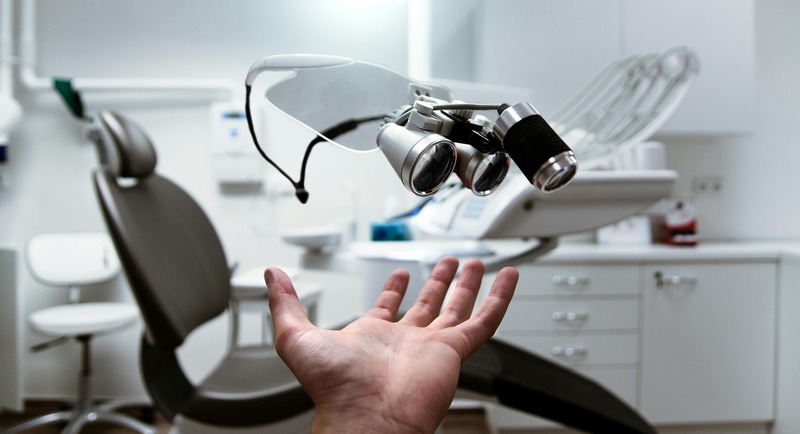Preparing for dental surgery involves more than just marking your calendar. It’s critical to take the right steps beforehand for a successful operation and speedy recovery. Thinking ahead can help ensure you’re as relaxed and ready as possible for the procedure ahead.
What to Know About Your Surgery
Having a solid understanding of the surgical procedure you’re about to undergo is a critical first step. A thorough discussion with your dental professional should clarify what exactly the surgery involves, the results you can anticipate, and the risks or any possible complications that might arise. Once you have this crucial information, you’ll be in a better position to prepare effectively for the surgery and take any special measures that are important for your specific case.
-
Procedure Details: Gain a clear and complete understanding of the surgical procedure’s steps. Knowing what will happen during the surgery can help alleviate anxiety and allow you to plan for recovery.
-
Expected Outcomes: Have realistic expectations by discussing what the surgery aims to achieve and the potential improvements in your oral health and functionality.
-
Risks and Complications: While complications from dental surgery are not common, being aware of potential risks can assist in making an informed decision and preparing for a smooth recovery.
Medical History and Medications
While going through your surgical preparations, it’s essential to disclose your full medical history to your dentist or oral surgeon. This includes:
-
Any medical conditions you have
-
Medications you are currently taking (including over-the-counter drugs and supplements)
-
Previous surgeries or hospitalizations
These factors can influence surgical outcomes and anesthesia administration, so it’s important to provide accurate and thorough information.
Pre-Surgical Instructions
Your dental team should give you a list of instructions to follow before surgery. These often include guidelines on eating, drinking, and smoking. Usually, you might be asked to:
-
Avoid eating or drinking for 6-8 hours before surgery if you’re receiving general anesthesia
-
Stay away from alcohol and tobacco, as they can affect recovery
Make sure to follow these directives closely; they’re designed to optimize your surgery success and minimize post-surgical complications.
Arranging for Transportation and Aftercare
You won’t be allowed to drive after being sedated or anesthetized for dental surgery. Therefore, you should:
-
Plan for a family member or friend to take you home
-
Make arrangements for someone to stay with you following surgery, particularly if you live alone
Having a reliable support network post-procedure will be paramount for your safety and comfort as you recover.
Pre-Appointment Diet and Hygiene
Aside from fasting instructions for anesthesia, maintaining a healthy diet and good oral hygiene practices before surgery can support better outcomes. This could mean:
-
Eating well-balanced meals leading up to the procedure
-
Continuing to brush and floss as normal to keep your mouth clean
These steps help prime your body for healing and can limit the risk of infection post-surgery.
Risks and Anesthesia Considerations
Your dentist will discuss the risks associated with your dental surgery, which vary depending on your age, health status, and the type of procedure. Moreover, be sure to talk about anesthesia. You should know:
-
What type of anesthesia will be used
-
How it might affect you during and after the procedure
-
Any required preparatory measures specific to the anesthesia
Understanding these aspects ensures there are no unexpected surprises and that you feel confident going into the surgery.
Dress Comfortably and Minimize Stress
Comfort is key when it comes to surgery. Opting for loose, comfortable clothing with sleeves that can be easily rolled up above the elbow will benefit you. Moreover, engaging in stress-reducing activities—like listening to music or practicing deep breathing exercises—can alleviate preoperative anxiety.
Special Precautions for Specific Procedures
The precautions you need to take can also vary based on the specific type of dental surgery you are undergoing. Those seeking detailed information on dental implants might learn that such procedures might require you to rinse with a special antimicrobial mouthwash before surgery or to start antibiotics a few days ahead to reduce the risk of infection.
Plan for Recovery
Post-surgery, you’ll need time to recover, which should be taken into consideration beforehand. This means:
-
Stocking up on recommended soft foods
-
Preparing a comfortable recovery area in your home
-
Getting any prescribed medications for post-operative pain or swelling before the day of surgery
By having everything ready, you can focus solely on rest and recuperation. When it comes to dentures services, the preparation may involve having impressions taken of your mouth and discussing the function and aesthetic outcomes you are expecting from your new dentures.
Wrapping Up
In essence, preparing for dental surgery is about foresight and meticulous planning. It’s essential to be well-informed about your procedure, communicate openly with your dental team, and adhere to pre- and post-care instructions. A systematic approach to your preparation can pave the way for a smoother surgery and a faster return to your daily life.
Don’t forget to arrange for help and consider recovery logistics ahead of time. By following these preparatory measures, you equip yourself with peace of mind and set the stage for a successful dental surgery. Yours is not just a journey of dental transformation but also an embodiment of proactive care and wellness.





